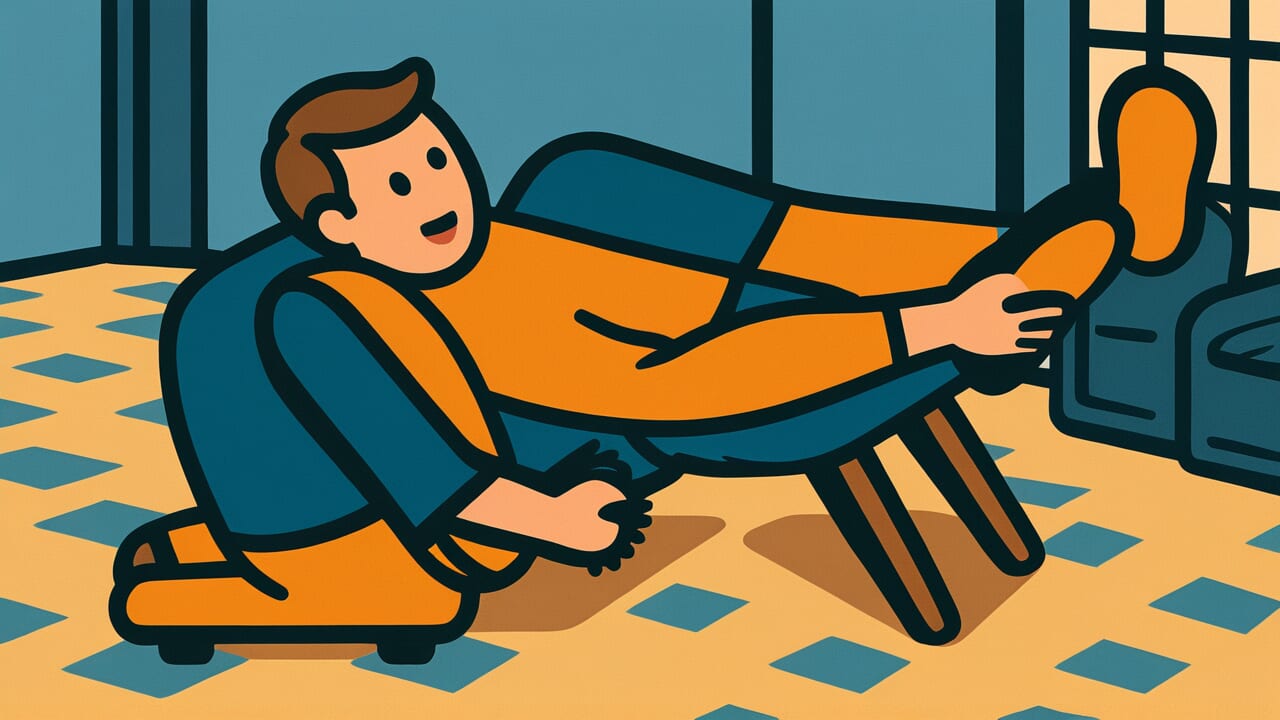How to Read “Even Date’s bare feet happen because he has nothing”
da-te no su-a-shi mo na-i ka-ra o-ko-ru
Meaning of “Even Date’s bare feet happen because he has nothing”
This proverb shows that people who put on airs often lack substance. Those who dress flashily or act extravagantly are actually the ones without financial stability or true wealth.
You use this saying when describing someone whose appearance or words seem impressive, but whose actual life or abilities don’t match up.
For example, it fits people who wear luxury brands but struggle with basic living expenses. It also applies to those who talk big but have no real achievements to back it up.
The proverb reveals a deeper insight. Showing off is actually a sign of inner poverty or lack of confidence.
Truly wealthy people don’t need to force themselves to look good. The proverb expresses this truth through the concrete image of “bare feet.”
Even today, this wisdom applies to people who create glamorous lives on social media while their real lives are difficult.
Origin and Etymology
No clear written records explain the origin of this proverb. However, the structure of the phrase reveals an interesting background.
The word “Date” refers to flashy, showy clothing and behavior. This meaning comes from Date Masamune, a famous warlord from the Warring States period.
During the Edo period, the term “Date-mono” emerged. It described stylish people who valued appearance. But it also carried a sarcastic meaning about people who were all show and no substance.
The expression “bare feet” is particularly interesting. It reflects the actual living conditions of common people at that time.
In the Edo period, sandals and wooden clogs were not cheap items for ordinary people. The truly poor couldn’t afford footwear at all. They had no choice but to walk barefoot.
The phrase “happen because he has nothing” directly points to this economic hardship.
In other words, the proverb expresses this ironic observation: “Even when people try to dress flashily and show off, they don’t even have money to buy footwear. This lack is what creates their false bravado.”
The people of Edo saw clearly through the gap between the desire to decorate one’s appearance and the economic reality behind it.
Usage Examples
- He drives around in a luxury car, but “Even Date’s bare feet happen because he has nothing”—apparently his parents send him money
- She keeps buying brand-name items to show off, but it’s a case of “Even Date’s bare feet happen because he has nothing”—her savings are actually zero
Universal Wisdom
“Even Date’s bare feet happen because he has nothing” sharply understands human psychology around the need for approval and self-defense.
Why do people pretend to have what they don’t? Because they desperately want to prove their worth through appearance.
When people lack inner confidence, they try to protect themselves by decorating the outside. This is a fundamental human behavior pattern that transcends time.
Showing off is actually an expression of deep anxiety. It reveals the desire to be recognized and the fear of being looked down upon.
What’s interesting is that this proverb isn’t just criticism. It shows deep human understanding.
It doesn’t simply condemn people who show off. Instead, it points to the state of “having nothing” that lies behind their behavior.
In other words, it understands that false bravado is the flip side of weakness.
Our ancestors knew that humans struggle with the gap between appearance and reality. They captured both the comedy and sadness born from this struggle in this proverb.
The saying conveys an important truth indirectly but surely. True wealth exists not on the outside, but on the inside.
When AI Hears This
Showing off is actually a “low entropy state” in physics terms. Entropy measures disorder. Everything in the universe naturally moves toward disorder when left alone.
Just as a room naturally becomes messy, maintaining order always requires energy.
Consider the act of wearing clogs on bare feet to look stylish. The “natural state” of not having money for socks is covered by the “created order” of showing off.
Maintaining this state requires constant energy. You must always be careful not to be noticed. You must restrict your actions to avoid revealing the truth. You must continuously consume psychological stress as energy.
It’s exactly like a refrigerator that must keep using electricity to maintain the cold inside.
The speed of collapse is interesting. In thermodynamics, the greater the temperature difference, the faster heat moves.
Similarly, the bigger the gap between appearance and reality, the more the cost of maintaining it increases exponentially.
For someone earning 200,000 yen monthly, pretending to live on 1 million yen will collapse much faster than pretending to live on 300,000 yen.
In the end, the moment energy supply stops, the system rapidly collapses into a high entropy state. This means the disorder of “being embarrassed.”
This is an example of physical laws applying coldly to human society.
Lessons for Today
This proverb teaches you that true wealth exists inside, not outside. With social media everywhere today, everyone faces the temptation to make themselves look good.
But the more energy you spend showing off, the further you drift from what truly matters.
What’s important is having the courage to honestly accept your current situation. Stop stretching yourself thin. Focus on what you can do right now.
This approach leads to more reliable growth in the end. When you no longer need to show off, you’ll have gained real confidence.
This proverb also teaches you how to view others. When you see someone with a flashy appearance, have the kindness to imagine the circumstances and feelings behind it.
Everyone carries some form of anxiety or sense of lack.
Your value isn’t determined by your possessions or appearance. Keep your feet on the ground. Build your abilities step by step.
That sincerity will ultimately become your most beautiful decoration.



Comments